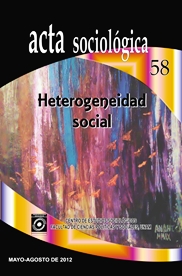The imaginary teotihuacano: The urban space as a space symbolic
Main Article Content
Abstract
This paper provides a brief analysis of the relationship between the “imaginary”as anthropological and epistemological category, and the origin of citiesand their spatial organization, is taken as an example the study ofTeotihuacán. We note how the organization of space in Teotihuacán is symbolicand represents a particular aspect of the imaginary, or, the urban spaceorganized as a symbolic space reveals the urban imaginary of Teotihuacánculture. The symbolic imagination is fully expressed in the ancient cities asTeotihuacan. By way of conclusion, we refer briefly to the historical processthrough which the imagination is constantly degraded by economic rationalitycausing serious impact on all aspects of human life and, of course, in thecity, the organization of its urban space and its inhabitants.
Article Details
How to Cite
Márquez Pulido, U. B. (2012). The imaginary teotihuacano: The urban space as a space symbolic. Acta Sociológica, (58), 135–156. https://doi.org/10.22201/fcpys.24484938e.2012.58.32157
